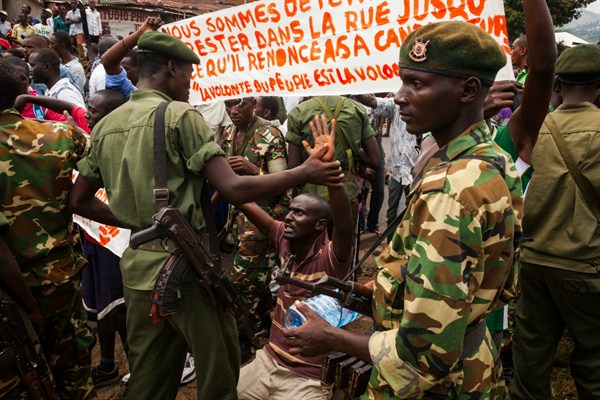NAIROBI, Kenya—Epitace Nimbona spent 17 years in the Burundian army, climbing to the rank of captain. As an infantry soldier, he fought against rebels during the country’s civil war. He then advanced to a military university and underwent logistics training in the capital, Bujumbura, and in nearby Kenya. Later, he trained with American soldiers and deployed with two separate peacekeeping missions elsewhere in Africa.
His career, however, ran aground following President Pierre Nkurunziza’s bid for a third term in 2015—a bid that many people inside and outside the country deemed to be unconstitutional. Protests against it, and Nkurunziza’s ensuing crackdown, sparked a political crisis and the worst violence Burundi had seen since the civil war ended in 2003. Amid that unrest, Nimbona increasingly clashed with political and security officials. Fearing for his safety, he defected last year.
Listen to Julia Steers discuss this article on WPR’s Trend Lines Podcast. Her audio starts at 19:38.

